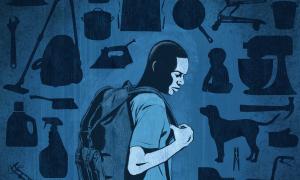Back to School: Creating a Nurturing School Culture
This back-to-school season, educators, parents and caregivers can commit to partnering to support all young people. A nurturing school culture that prioritizes well-being along with learning is essential for keeping children in school and ending pushout — a critical step in dismantling the school-to-prison pipeline. Building and sustaining relationships in nurturing ways can help to create the sense of safety and support young people need for learning. The effectiveness of these practices increases when combined with strong family, school and community partnerships.
- Creating School Culture That Nurtures Young People
- Education Justice
- Advocating for Public Education
